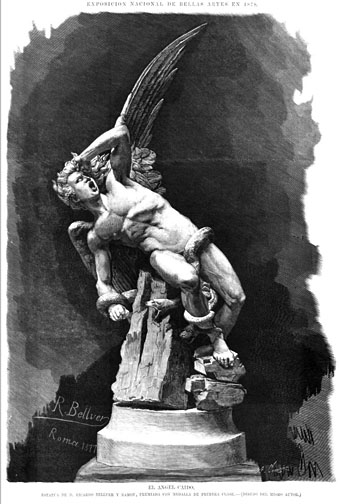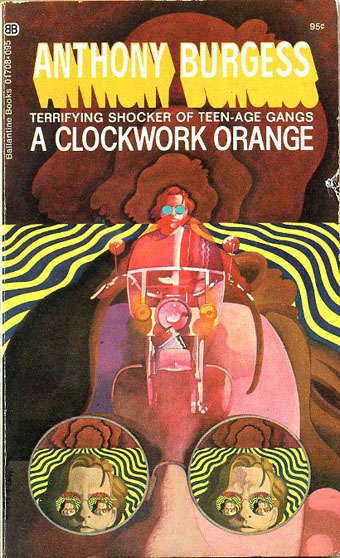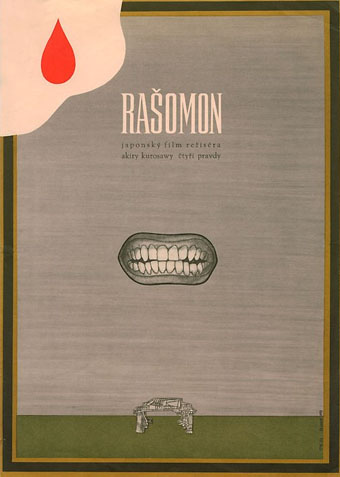Magazine illustration of The Fallen Angel (1877) by Ricardo Bellver, a statue for The Fountain of the Fallen Angel in Madrid
• Obituaries of the late Stephen Hawking were obliged to concentrate on the professor’s disabilities and global celebrity while skirting around the trickier questions of what he actually spent the best part of his life thinking, writing and talking about. Roger Penrose was not only a friend of Hawking’s for many years but also one of his equally skilled professional colleagues. Penrose’s piece for the Guardian was notable for the way it provided a succinct but informed summary of Hawking’s work at the forefront of theoretical physics.
• Brian Eno has announced a box set of old or previously unheard recordings for his artworks, Music For Installations. (Be warned that the various editions range from expensive to very expensive.)
• Flame 1 is the name of a collaboration between The Bug and Burial. The Quietus has an exclusive preview from the forthcoming album.
• Mixes of the week: XLR8R Podcast 533 by µ-Ziq, and Secret Thirteen Mix 249 by Eva Geist.
• Buy High, Sell Cheap: Elianna Kan interviews Alejandro Jodorowsky.
• At Dangerous Minds: Addams Family comic books from 1974.
• Advanced Creepology: Re-Reading Lolita by Michael Doliner.
• A Quietus list of the 40 best compilation albums of all time.
• At Spoon & Tamago: An anti-decluttering house.
• At Dennis Cooper’s: The Spheres.
• Physical (1981) by Olivia Newton-John | (Let’s Get) Physical (1990) by Revolting Cocks | UK Girls (Physical) (2001) by Goldfrapp




